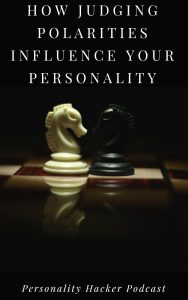Download Episode Here – right click link and select “Save Link As…”
In this episode, Joel and Antonia continue to dive into deep personality type content around the cognitive function polarities, what they are, why they are important, and how they influence your personality. On the last episode they talked about the perceiving polarities. In this “part two” episode Joel & Antonia discuss the Judging Polarities.
To subscribe to the podcast, please use the links below:
Subscribe with iTunes
Non-iTunes Link
Download The Android App
Subscribe on Soundcloud
Subscribe with Stitcher
Subscribe on Google Play
Subscribe with Facebook Messenger
If you like the podcast and want to help us out in return, please leave an honest rating and review on iTunes by clicking here. It will help the show and its ranking in iTunes immensely! We would be eternally grateful!
Want to learn more?
Discover Your Personal Genius
We want to hear from you. Leave your comments below…



Share:
Podcast - Episode 0256 - How Perceiving Polarities Influence Your Personality
Podcast - Episode 0258 - 3 Frameworks To Reflect On Personal Growth
29 comments
In the interest of clean data, I’d like to point out that what numbers we have (assuming, as Antonia pointed out, that people are reporting their type correctly) actually indicate that Te-Fi is slightly more common than Fe-Ti. I believe the data most people in the type community use come from the edition of the MBTI manual published between 1972-2002, in which case, adding up the percentages of the individual types gives ~54% for Te-Fi versus ~46% for Fe-Ti. According the 4th ed. MBTI manual published in 2019, the gap has widened a bit in recent years to ~56% for Te-Fi and ~43% for Fe-Ti. (The gap between the perceiving polarities has narrowed slightly, but the percentages are still over 60% for Si-Ne and under 40% for Ni-Se.)
What I found really interesting were the unexpected big changes in the percentages of the sixteen types between ‘02 and ’19. SFJs apparently no longer claim the biggest share of the population (and this is a global sample, FYI)—ISFJ dropped from the #1 spot to #4, and ESFJ dropped from #2 to #10! Their former spots are now occupied by ISTJ at #1 and ISTP at #2. Perhaps the women who came of age after the millennium didn’t favor Fe as heavily as the previous generation?
And as an INFJ who got sick of that rare-and-special-overromanticized-unicorn rep very quickly, I’m excited that my type is now only the third rarest—now ENTJs get to be the unicorns! (Though I somehow doubt that anyone will be brave enough to call an ENTJ a unicorn to their face :P.) If anyone else is interested in the new numbers, I first heard about them on the Psychology Junkie site: https://www.psychologyjunkie.com/2019/11/15/how-rare-is-your-myers-briggs-personality-type/
I’m a TP, and personally I understand a lot of FPs not only through those I personally know, but by studying the lives of real famous people, literature and even through analyzing modern films.
For example, if you look for the videos on the analysis of films, “Cher, Master of the Argument,” or “Legally Blonde : Elle Woods — Philosophy of the Blonde,” you would find two examples of EFPs with very high Te. Cher, who in my opinion, is a quirky ENFP, tends to be rather seen as a dumb party girl, when she is actually very intelligent. She uses her formal Te credibility logic to persuade all kinds of people well, though emotional persuasion is her best persuasion skill. Her Fi intelligence allows her knowledge of all kinds of emotional arts with depth, particularly in literature, and her Te logic seems to be strengthened by her father’s influence, a skilled lawyer.
Ti logic on the other hand is less created by formal agreements between people in law, government or business though, but with more of the type of logic gained through personal observation and daily life on your own. If you see the movie, you’d notice Cher is really bad at expressing the type of logic that isn’t gathered from other people’s agreement, and so can’t be flexible to creating new logical conclusions. This is why she gets such a bad score in a lot of persuasion essays in school, and how her teacher comments on how unstructured her logic is, because Ti often works to simplify logical conclusions making it a good function to make people easily understand logical things.
On the other hand, Te looks for more complexity, with trying to look for more and more ways to implement something. She has the logic well planted in her brain, she just does not know how to explain the reasonings behind her conclusions. Ti often asks, “Why?” Te often asks, “How?” This creates a dynamic where she can’t really explain well the reasons behind why she wants something implemented, considering it’s her Fi Authenticity function that drives more emotional value functions to implement things. When Te works to persuade, they often do so by crediting other people’s experience, often experts in a subject. That, or they show you that it can be done, rather than verbally explaining the arguments behind it, which can be done in a way with Fe, that expresses reasonable arguments in an emotional charismatic way. Think a lot of stand up comedy shows have a lot of TPs reasoning arguments in a way that makes people laugh in the irony of all kinds of situations.
Elle Woods, seems to be more of an ESFP, rather than having all the random ideas Cher has with Ne, Elle seems to find a lot of things to do with Se. Not to mention that Se has a skill in seeing body language well, in contrast to ENFJs who tell people’s emotions less by what they physically see, but by what their gut feeling tells them, or the patterns of habits they have in daily life that can help predict things in the future. Se also has a stronger love for expressing one’s self through physical appearance, and Elle often is treated as “dumb” because attention to appearance is associated with lack of intelligence. She goes into law school, but is often seen as naive due to her Fi idealism of working to defend law by focusing on who the real culprit is, rather than focusing on success or winning the case. In the end, she wins her first case by believing deeply in the innocence of her own client, due to both her Se and Te working to discover facts about the case by using Se to notice really small physical details that reveal facts about the case, then connecting those facts to Te law arguments. An ESTP lawyer would likely be able to do a similar with Se, but with Ti, also have a special ability to solve cases by realizing how the logic of a supposed genuine witness contradicts itself. Considering Ti often asks, “Why?” than “How?” an ESTP lawyer with strong Fe can combine Ti and Fe to trace the logical steps to understand the why behind a person’s deeper motivations as well. After all, Ti Accuracy is able to bring Fe Harmony by understanding whether a person’s claims are accurate or not. Elle’s Te Effectiveness on the other hand, often emphasized physical evidence more, and with Se was able to figure things out through studying key physical evidence.
Hey Antonia,
Hi Joel,
I just wanted to share another comment like I did in the Percieving polarity podcast. Something that really clicked for me was when Antonia mentioned that the polarity that you will go between in a more balanced way is probably the polarity that lies in your co-piolet and ten year old.
I am pretty sure I have that Ni Se in either co pilot or ten year old, since it feels like I can access both in short bursts, either being impulsive or analytical.
Still a bit confused on the Judging polarities, they seem less clear to me. I think I am usually putting myself in groups with a dominant Fe Ti polarity because I always appreciate when the emotions go up up up and people are all relaxed and having good time, but I will still at times isolate myself to sift through personality (MBTI and such) articles to better see the types and how everything relates. In these times I feel like I am using Ti or Ni. both seem similar to me.
What I am doing is looking at different sources of information and comparing and contrasting them against each other. I am trying to find my accurate type and others accurate types to get a clear static picture of how it is all connected. The information is constantly changing my mind on my type and other peoples types depending on what I am relating it too in my mind. It feels like my perceptions just never stand still to solidify them into a working system, which is the goal.
Wondering if that sounds like Ti or Ni or maybe a mx of the two, or maybe even Fi since I am changing my identity with new pieces of information about how personality and relationships work.
As I listened to this I was wondering if it would be right to think of the Te – Fi polarity as results vs intension?
I am an ENTJ and have noticed that its easier for me to understand and interact with others when I identify their intensions. Then I can jugde something not just by the result (which I tend to do), but by the conection between intent and result. “Did you achieve what you set out to do?” And I feel that my Fi primarily is bugging me about meaning, not my feelings. “Why do I do what I do?” Like: What is the goal? On a more value-based level.
Is this an oversimplyfing way of thinking about it or is it at all helpfull?
Another great podcast! So illuminating and insightful – I’m learning so much! Getting to grips with the Fi/Te polarity has helped me to understand why myself (INFP) and my INTJ husband (despite our obvious challenges) work so well together on some aspects. After years of graduate level study and work as a leader in healthcare I have over time balanced my Fi/Te and he and I can really get into the zone talking about work and the things we need to get done. For him I bring a more human/ emotional element to the table and he helps me see the bigger picture and the wider implications of my decisions. I hadn’t fully understood what was going on under the bonnet until now and very much enjoyed listening to this episode and reflecting on this information. Thank you.